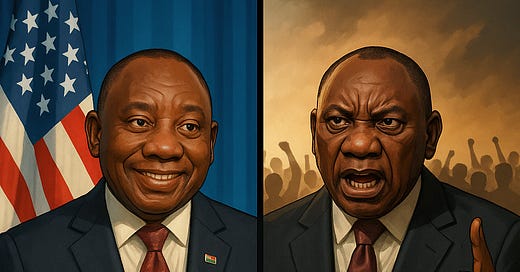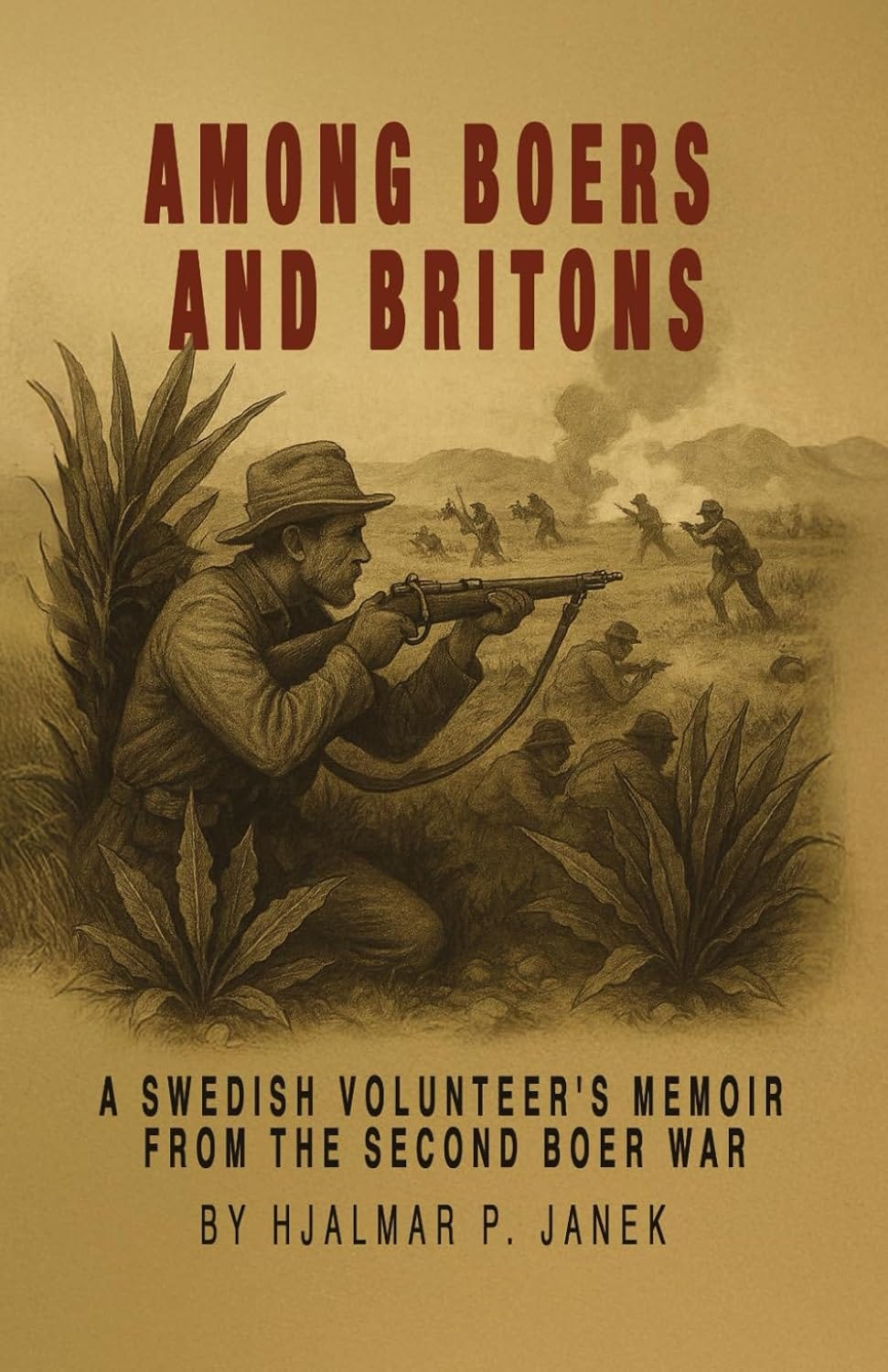Ramaphosa on ‘Kill the Boer’ — Condemned in D.C., Defended in Johannesburg
When diplomacy demands denial—and power demands affirmation
Something interesting happened recently.
During his meeting with Donald Trump in the White House, South African President Cyril Ramaphosa was pressed about the infamous Kill the Boer song — performed by, among others, EFF leader Julius Malema, often to stadiums filled with cheering supporters.
Ramaphosa’s response? “We’ve always condemned it.” As a government. As a party.
But just days later, back home in South Africa, the tone shifted dramatically.
Suddenly Kill the Boer wasn’t a hate chant — it was a “liberation song”, legally protected by the Constitutional Court, and, according to Ramaphosa, part of the country’s proud commitment to freedom of expression in a “sovereign state” that refuses to let others “dictate who should be arrested.”
Same song. Same president. Two entirely different narratives — depending on the audience.
In the White House, he’s speaking to a Western audience that instinctively recoils at the idea of a public chant about killing a minority group. Because we simply can’t imagine the reverse — a song calling for the death of blacks in a modern Western democracy. So Ramaphosa plays the moderate. The conciliator. The man who agrees that such things are beyond the pale.
But back in South Africa, he’s speaking to a different crowd — a postcolonial, ANC-loyal voter base, where the song is part of the political legacy. Here, the symbol must be defended. Here, a different language is required.
It’s a textbook example of postcolonial double-speak — one message for the West, another for the homeland.
To the international community, he says what’s needed to keep the aid flowing, maintain investor confidence, and preserve diplomatic legitimacy. But on home soil, the power base must be reaffirmed. And that means protecting symbols like Kill the Boer — now wrapped in legal formalities.
He gives a political threat legal cover. And everyone knows that this “legality” exists in a country where thousands of white farmers have been murdered.
This isn’t just about Ramaphosa. The anti-white sentiment that now hides behind constitutional technicalities has long been embedded in the ANC’s political culture.
Former president Jacob Zuma famously claimed that “all problems in South Africa can be traced back to 1652” — the year Jan van Riebeeck arrived at the Cape. That’s not just historical grievance. That’s a declaration of ideological origin: the presence of whites is the root of national dysfunction.
His predecessor, Thabo Mbeki, also made his position clear. In a sharp defence of Kill the Boer, he dismissed international concerns entirely, insisting that the song was a legitimate liberation chant and should be sung without apology.
And now, under Ramaphosa, that ideological arc continues — not through slogans alone, but through policy. The state is actively pursuing land expropriation without compensation: the legal dismantling of property rights, justified as restitution but functionally aimed at racial redistribution.
This is regime culture.
And this is how politics is often played. The difference now is: we can see it.
In the past, we were at the mercy of filtered quotes in state-approved media.
Today, with open archives, parallel channels, and an internet that never forgets — we can compare. Watch. Sync. And understand.
Until next time
Jonas Nilsson
PS:
If you’re interested in South African history — or just looking for a gripping real-life account of guerrilla warfare — you should check out Among Boers and Britons. Now available on Amazon.
It’s a war memoir from the Second Boer War, written by a young Scandinavian volunteer who fought alongside the Boers against the British Empire.
Out of print for over a century, it’s now available again with a new introduction and afterword from me — placing the story in its full historical and geopolitical context.
Raw, personal, and at times surprisingly humorous, it offers a rare glimpse into a forgotten war that shaped the South Africa we know today.
Perfect for readers who want more than just headlines — and who understand that history never really ended.





QUESTION: I suspect the black extremists in SA will not slow down such rhetoric and actions until all white farmers disappear or the whites in SA own no land outside of urban residential areas. After that, they have to choose between cleansing all the way or stopping the purge and keeping the whites in professions unrelated to land and farming. Do you think there can be such a natural endpoint to the cleansing?